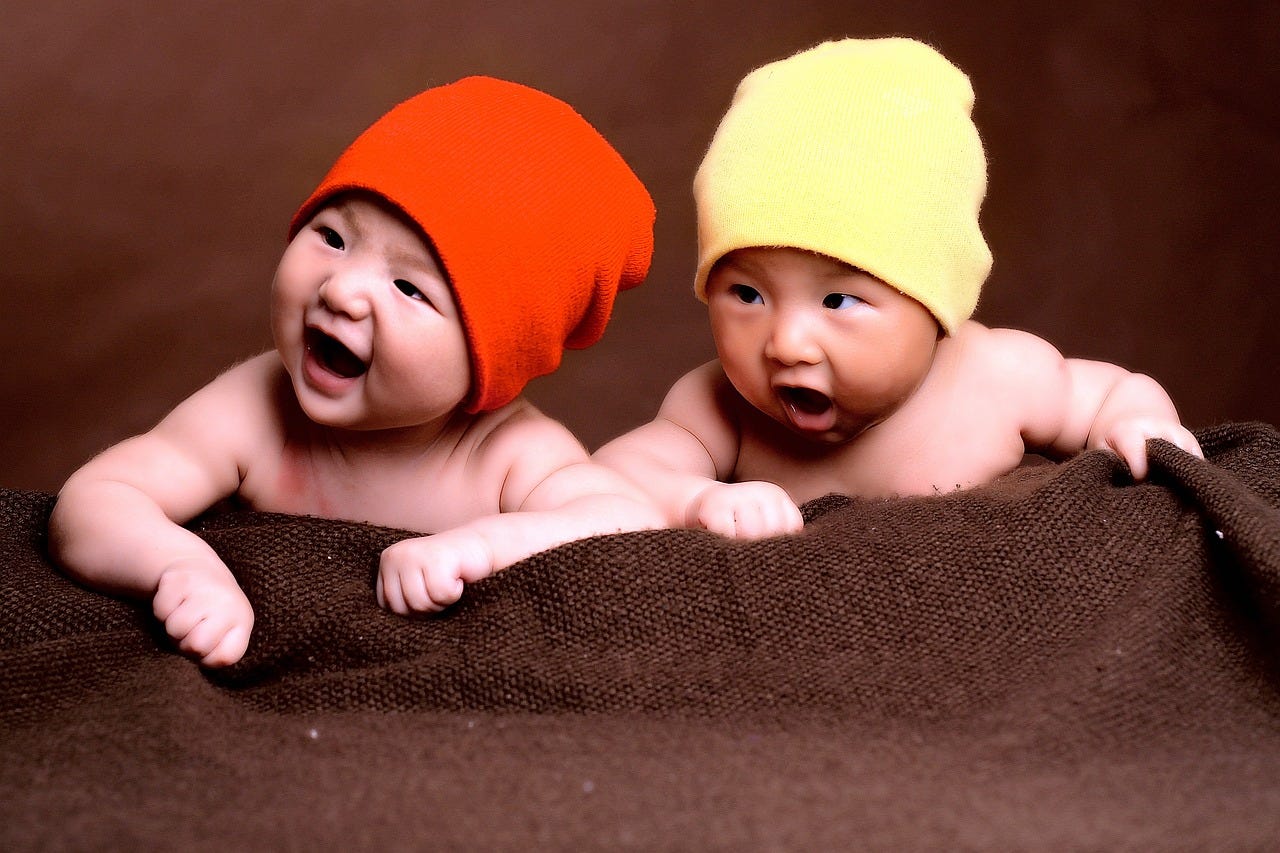Trans 101: Part 3
Part 3 of 11: How Gender Identity Develops in Children
(In case you missed them, here is Part 1 & Part 2 )
OK, so gender identity typically develops in stages during early childhood:
At around age two, children become conscious of the physical differences between boys and girls.
Usually before their third birthday, most children can easily label themselves as either a boy or a girl.
By age four, most children have a stable sense of their gender identity.
During this time, children learn the social constructs of gender role behavior (ie: “this is what boys do”, “this is what girls do”), but cross-gender preferences and play are a very normal part of gender development and exploration regardless of their future gender identity.
Around age 3 or 4, if a child finds that their gender identity does not match their biological sex, they’ll often correct their parents and family by saying things like, “Don’t call me a boy; I’m a girl”, or “I’m not ‘she’; I’m ‘he’”. Research suggests that children who assert a gender-diverse identity know their gender as clearly and consistently as their developmentally matched peers.
Isn’t this a powerful piece of information? If a child is transgender, the parents themselves will often know before their child heads off to kindergarten because their child will have revealed or told them in some way.
In one survey, parents and caregivers of transgender youth first noticed signs of gender diversity at an average age of 4 ½ years old, while the children themselves first described their gender as “different” around age 6.
Anecdotally, my friend started telling their family to call him “he” instead of “she” and saying “I’m not a girl; I’m a boy” at about 4 years of age - and this was decades and decades ago when the internet wasn’t really a ‘thing’ and my friend and their religious family had never come across the notion of gender identity or being trans (absolutely no “indoctrination” going on here). His family (out of ignorance) just played it down, so my friend had no choice but to silence himself until he was an adult and could pursue his identity on his own, but he has always known his true gender was male. Please don’t let people tell you that being trans is a matter of being confused or being indoctrinated - gender identity doesn’t work that way.
While this is a common occurrence, it isn’t a universal experience, as many transgender people don’t express (or even understand) their gender identity until they are teens or adults. At this point, it’s difficult to know to what extent this is impacted by unaware or unsupportive families, or the lack of information or even language available to kids to describe their inner sense of self.
Another important fact to consider is that while a child’s gender-specific behavior (ie: their gender expression) seems to be influenced at any time by exposure to stereotypes and their identification with others in their lives, their gender identity (that internal sense of being a boy, a girl, or something in between) cannot be changed. Research suggests that gender is something that can’t be modified by any interventions, and it’s critically important that children feel loved and accepted for who they know themselves to be.
I’d like to offer the idea that, for parents who are concerned that having their child learn about trans kids will “make” them trans, there is just no evidence to support this notion at all (unless the child is, in fact, non-binary or trans already). In much the same way that sending your boys to public school with girls won’t make your boys “decide” to be girls (and vice versa), having your child learn about or interact with a trans child won’t make your child become trans.
And the same truths about the development of gender identity apply to your cis-gender child: trans kids often know their gender identity by age 4, but your own child does, too. If they’ve never expressed any sense of incongruence, then it’s very likely your child is part of the 97-99% of people who are cis-gender. And - once again - science indicates that gender identity can’t be changed.
Come back for the next post, where we’ll talk about how transitioning works for trans/non-binary children.
~ K.



Thoroughly enjoying these Karla…..truly “life is weird as shit” I love your heart on these matters. ❤️